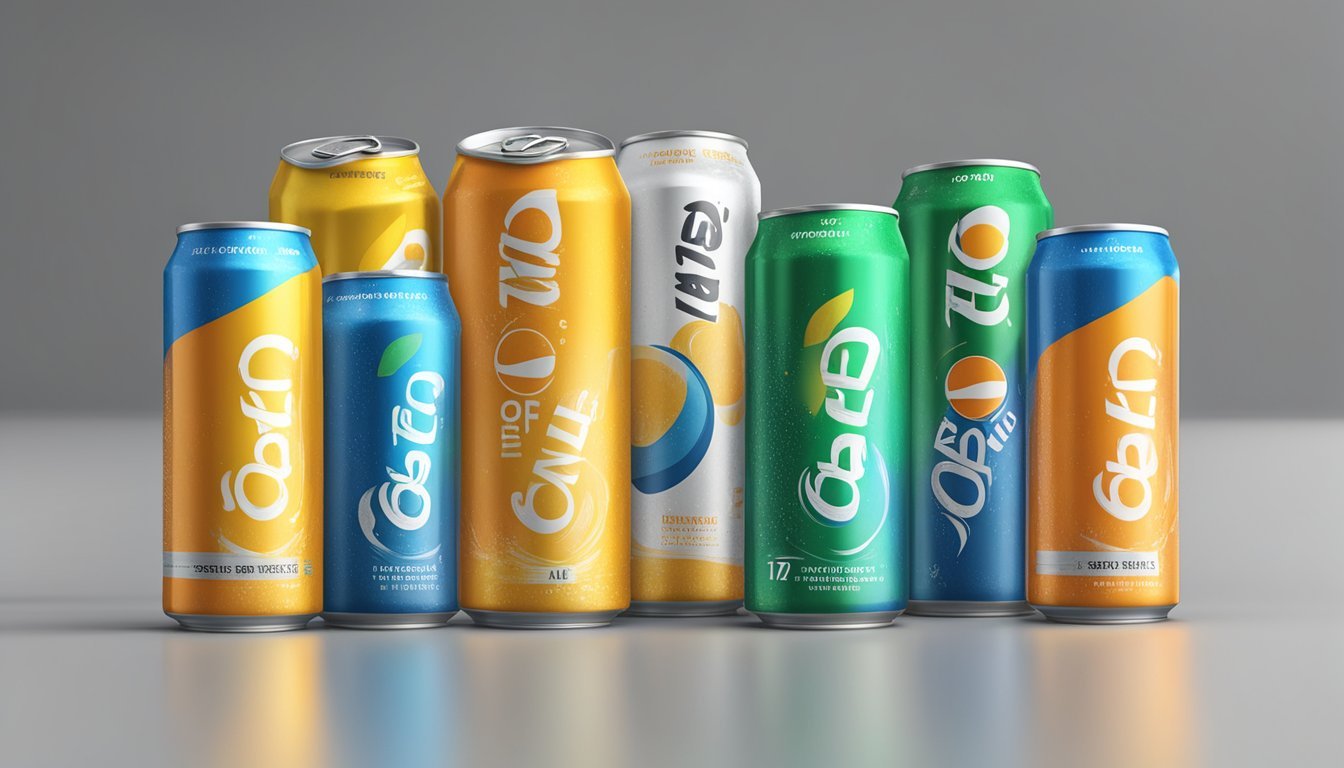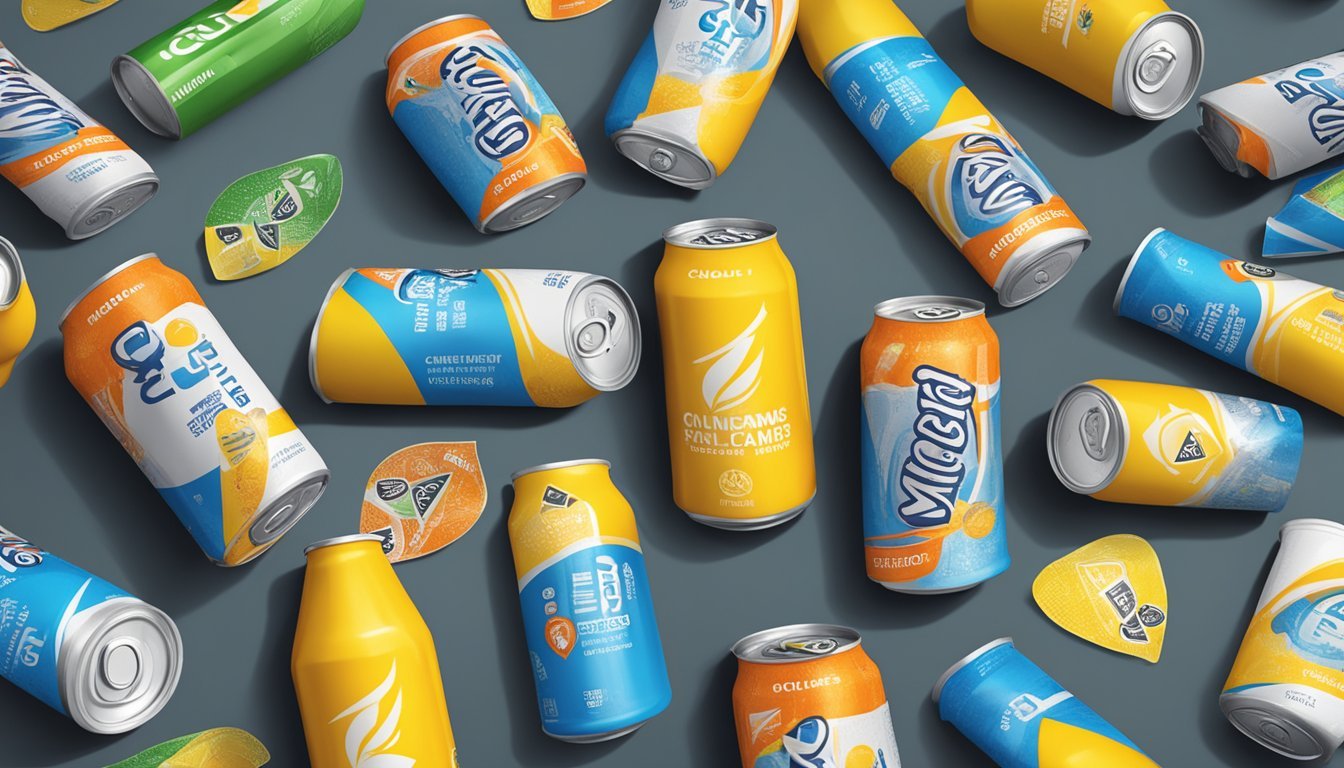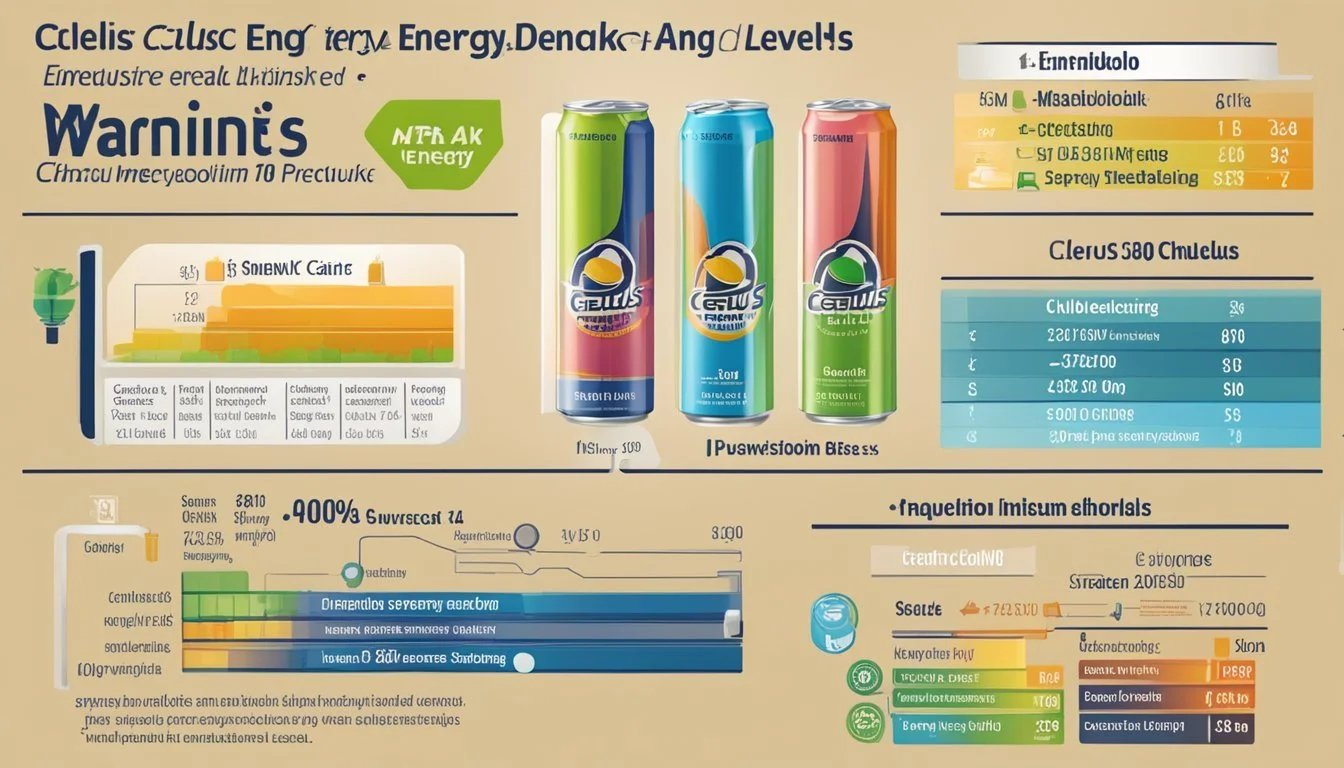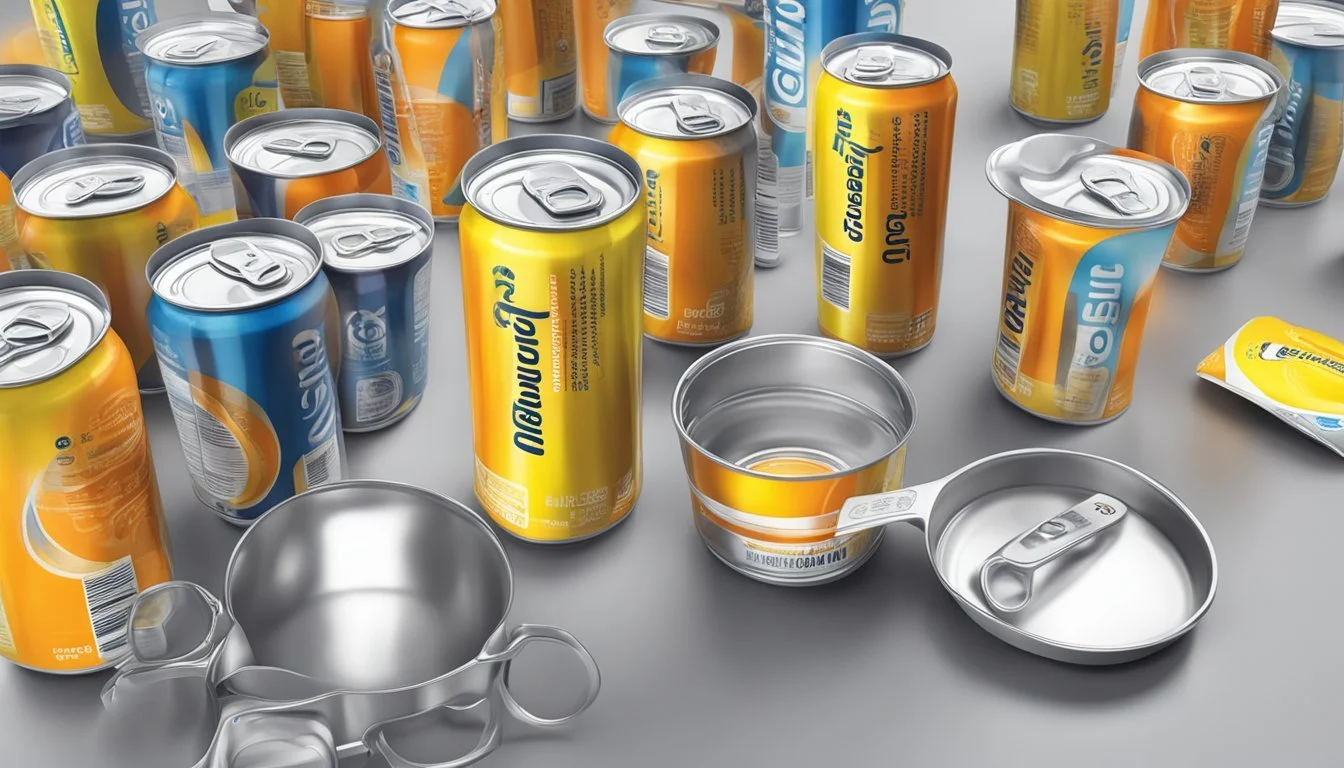How Many Servings of Celsius Energy Drink Is Too Much
Expert Guidelines and Safety Tips
Many people turn to energy drinks like Celsius to boost their energy levels and improve focus throughout the day. With its claims of enhancing performance due to its caffeine and taurine content, it's no wonder Celsius has become a popular choice. However, consuming more than two cans of Celsius per day may lead to excessive caffeine intake and potentially adverse health effects.
A single can of the original Celsius contains 200 milligrams of caffeine, significantly higher than many other energy drinks on the market. This high caffeine content means that just two cans would give you 400 milligrams of caffeine, close to the 400 mg daily limit recommended by health experts for most adults. Drinking more than this amount can lead to symptoms such as jitteriness, increased heart rate, and difficulties sleeping.
For those sensitive to caffeine or with pre-existing health conditions, even smaller amounts might cause adverse reactions. Consuming Celsius energy drinks responsibly and being aware of your daily caffeine intake can help you avoid potential negative effects while still enjoying the benefits this beverage offers.
Understanding Celsius Energy Drink
Celsius Energy Drink is widely popular for its energy-boosting properties and is marketed as a health-conscious alternative to traditional energy drinks. It contains a unique combination of ingredients along with essential vitamins and minerals.
Ingredients Profile
Celsius Energy Drink's formulation includes a blend of green tea extract, guarana seed extract, ginger extract, and caffeine. These ingredients work in synergy to enhance energy and focus. The drink also contains taurine and glucuronolactone, substances often used in energy supplements.
Green tea extract and guarana are touted for their natural caffeine content and antioxidant properties.
Caffeine is the primary stimulant, with 200 mg per serving, which is significantly higher than many other energy drinks.
Nutritional Information
A standard can of Celsius Energy Drink contains 10 calories and 0 grams of carbohydrates, sugars, proteins, and fats. This low-calorie profile appeals to health-conscious consumers.
The drink includes varying amounts of vitamins B and C, which play crucial roles in energy metabolism and immune function.
Celsius Essential is a variant available in a larger 473 ml can, which contains 270 mg of caffeine, offering an even more potent energy boost.
Celsius Product Line Overview
Celsius offers a range of products suited to different preferences and needs.
Original Celsius: Comes in a 355 ml can, containing 200 mg of caffeine.
Celsius On-The-Go: Single-serve sachets that mirror the original drink's formulation, also with 200 mg of caffeine.
Celsius Essential: Larger 473 ml cans with 270 mg of caffeine for those needing a more robust energy boost.
All products are free from artificial preservatives and flavors, aiming to provide a clean energy source.
Effects of Ingredients on Energy and Metabolism
Celsius energy drinks are formulated with several ingredients designed to boost energy and enhance metabolism. These ingredients include caffeine, essential vitamins, and other functional compounds that interact with the body in specific ways to achieve their effects.
Caffeine and Energy Boost
Caffeine is a primary ingredient in Celsius, critical for its energy-boosting properties. Each can contains approximately 200 mg of caffeine, derived from sources like green tea extract and guarana seed extract. Caffeine increases alertness and improves physical performance by stimulating the central nervous system. It works by blocking adenosine receptors, thereby reducing the sensation of fatigue.
This level of caffeine surpasses that found in a typical cup of coffee, which averages around 95 mg. Regular consumption of caffeine can also promote thermogenesis, which elevates body temperature and helps in burning calories. However, consuming too much caffeine can lead to side effects such as jitteriness, insomnia, and increased heart rate.
Vitamin B Complex and Metabolism
Celsius drinks are rich in B vitamins, including Vitamin B12, which play a crucial role in metabolism and energy production. B Vitamins are water-soluble and essential for converting carbohydrates, fats, and proteins into energy. They also support the proper functioning of the nervous system and help reduce fatigue.
Vitamin B12, in particular, is significant in red blood cell formation and neurological function. A deficiency in B12 can lead to anemia and fatigue. Other B vitamins in Celsius, like B6 and niacin, contribute to maintaining energy levels and metabolic processes. These vitamins are especially important for those engaging in regular physical activity, as they ensure efficient energy utilization.
Additional Functional Ingredients
Several other ingredients in Celsius drinks contribute to its metabolic and energy-boosting effects. Taurine is an amino acid that supports heart and muscle function, improving exercise performance. Glucuronolactone may help reduce fatigue and improve cognitive function. Green tea extract contains antioxidants like EGCG, which promote fat oxidation and thermogenesis.
Ginger root extract supports digestion and has anti-inflammatory properties. Guarana seed extract is another source of caffeine and also contains antioxidants. Together, these ingredients work synergistically to enhance energy levels and support metabolic health, making Celsius a multifaceted energy drink.
These ingredients collectively aim to increase energy, improve alertness, and enhance metabolic rate, catering to individuals seeking better performance and vitality.
Nutritional Content and Diet Considerations
When discussing Celsius energy drinks, it is crucial to understand their nutritional content and how this may impact diet considerations. Key points include caloric and carbohydrate content, sweeteners and sugar levels, and a comparison with other popular energy beverages.
Caloric and Carbohydrate Content
Celsius energy drinks are designed to be a low-calorie option, with a 12-ounce can containing just 5 calories.
This makes them appealing for individuals monitoring their caloric intake. Unlike many other energy drinks, Celsius boasts zero grams of carbohydrates per serving.
This combination ensures a minimal impact on daily calorie limits, making it suitable for restrictive diets.
Sweeteners and Sugar Content
A notable feature of Celsius energy drinks is their sugar-free formulation. Instead of sugar, they use sucralose, an artificial sweetener.
This is important for those looking to avoid the high sugar content typical of many energy drinks.
Sucralose provides sweetness without additional calories, making it favorable for those managing sugar intake.
Different from traditional sugary drinks, this formulation supports a healthier energy boost.
Comparing Celsius with Other Beverages
When compared to other energy drinks, such as Red Bull and Monster, Celsius stands out for its low-calorie and sugar-free nature.
Red Bull contains about 110 calories and 27 grams of sugar per 8.4-ounce can.
Monster similarly has 160 calories and 54 grams of sugar per 16-ounce can.
In terms of caffeine, Celsius contains 200 mg per can, which is higher than the 80 mg in Red Bull but comparable to some Monster variants.
This makes Celsius a competitive option for those seeking a healthier alternative to traditional energy drinks.
Health and Safety Considerations
When consuming Celsius energy drinks, it is crucial to be aware of the daily caffeine limit, individual sensitivity to caffeine, and safe consumption guidelines. This section focuses on important health and safety considerations for those who consume these beverages.
Daily Caffeine Limit and Sensitivity
Celsius energy drinks typically contain high levels of caffeine, with a regular 355 ml can containing about 200 mg, while the larger Celsius Essential can contains 270 mg. The recommended maximum daily caffeine intake for adults is 400 mg, as per health guidelines. Such high caffeine content means that even two cans of Celsius could exceed safe levels for some individuals.
Caffeine sensitivity varies among individuals. Factors like genetic predisposition, medications, and underlying health conditions can affect how an individual tolerates caffeine. High caffeine intake can lead to jitteriness, anxiety, increased heart rate, and headaches. Those sensitive to caffeine should monitor their intake closely to avoid adverse effects.
Potential Side Effects
Consuming excessive amounts of Celsius energy drinks can lead to several side effects. Common side effects include increased heart rate, anxiety, headaches, and nausea. High caffeine levels can also exacerbate underlying health issues such as cardiovascular disease and high blood pressure.
In addition to caffeine, Celsius contains ingredients like taurine and glucuronolactone, which, in combination with caffeine, can stress the central nervous system. Regular excessive consumption might contribute to long-term health issues such as anxiety and potential cardiovascular problems.
Safe Consumption Guidelines
To safely consume Celsius energy drinks, it is recommended to limit intake to one can per day for most individuals. Those with high caffeine sensitivity should consider consuming even less. It is also advisable to avoid other sources of caffeine (like coffee and certain teas) on days when consuming Celsius.
Drinking Celsius beverages as part of a balanced lifestyle that includes healthy eating and regular exercise can help minimize risks. Additionally, monitoring one's health and paying attention to how their body reacts can provide further guidance on safe consumption levels. Always consult healthcare providers for personalized advice, particularly if dealing with health conditions or taking medications that may interact with the ingredients in Celsius.
Optimal Usage for Performance and Fitness
When it comes to harnessing the benefits of Celsius energy drink for fitness and performance, it's important to understand its best uses. Key areas include optimizing pre-workout routines, maintaining hydration and energy, and targeting consumption scenarios.
Pre-Workout Enhancement
Celsius energy drink can serve as an effective pre-workout drink. With 200 mg of caffeine per serving, it provides a significant energy boost, enhancing focus and performance during exercise. Athletes and fitness enthusiasts can consume one can 20-30 minutes prior to their workout.
This allows time for the caffeine to enter the bloodstream, improving endurance and increasing alertness. Combining green tea extract and guarana seed helps in efficient fat oxidation, which supports weight loss.
Hydration and Energy Maintenance
Maintaining hydration is crucial during workouts. Although Celsius provides energy, users must also consume adequate water. The drink contains ingredients like taurine and ginger extract which support hydration and improved metabolism.
Regular intake while monitoring your fluid balance can aid in sustaining energy without dehydration. Despite its energy-boosting qualities, it does not replace the need for water, especially during intense physical activities.
Target Audience and Consumption Scenarios
Celsius is suitable for those aiming to boost their performance at the gym, including regular gym-goers and professional athletes. It targets individuals looking for energy enhancement and better focus.
Different consumption scenarios include using it as a pre-workout drink or an afternoon energy booster. However, given its high caffeine content, limiting intake to one or two servings per day is recommended to avoid side effects like insomnia or agitation.
Specific consumption recommendations should consider individual caffeine tolerance and fitness goals, ensuring it’s used effectively without overconsumption.
Regulatory Compliance and Industry Standards
Celsius Energy Drink must adhere to stringent regulatory standards to ensure consumer safety. This section addresses the oversight by the FDA and the scientific and professional endorsements that support or critique the drink's formulation.
FDA Approval and Beverage Regulation
The FDA oversees the safety of energy drinks in the United States. All ingredients in Celsius, including caffeine and guarana, must comply with GRAS (Generally Recognized as Safe) standards. The drink's labeling must accurately list all ingredients and their quantities.
Celsius frequently highlights its natural ingredients, such as green tea extract and ginger extract. These components must meet the FDA's purity and quality standards to be included in beverages marketed in the U.S.
Ongoing testing and compliance checks ensure that products like Celsius do not exceed safe levels of caffeine and other active components. Energy drinks should not surpass 400 mg of caffeine per day according to FDA guidelines to avoid adverse effects.
Scientific Research and Endorsements
The International Society of Sports Nutrition (ISSN) has evaluated ingredients in Celsius for athletic performance and safety. They affirm the benefits of components like taurine and glucuronolactone for energy and recovery.
Scientific research backs the effectiveness of caffeine in improving mental alertness and physical performance. Celsius, with its 200-300 mg of caffeine per serving, aims to stay within safe limits while providing these benefits.
Professional endorsements from dietitians note that while Celsius contains beneficial natural ingredients, moderation is key. Excessive consumption could lead to side effects. Therefore, consumers should follow recommended servings without exceeding limits.








